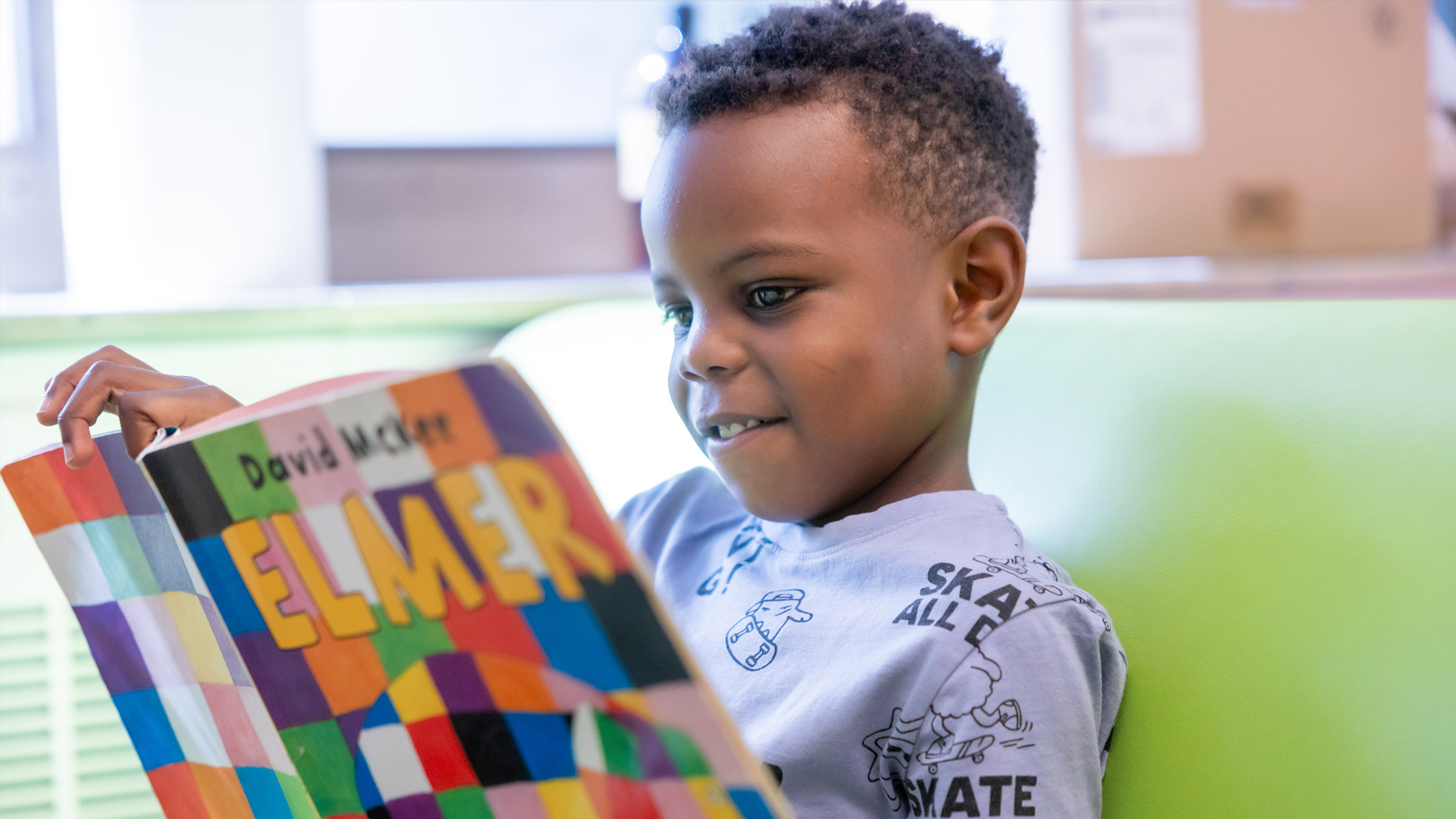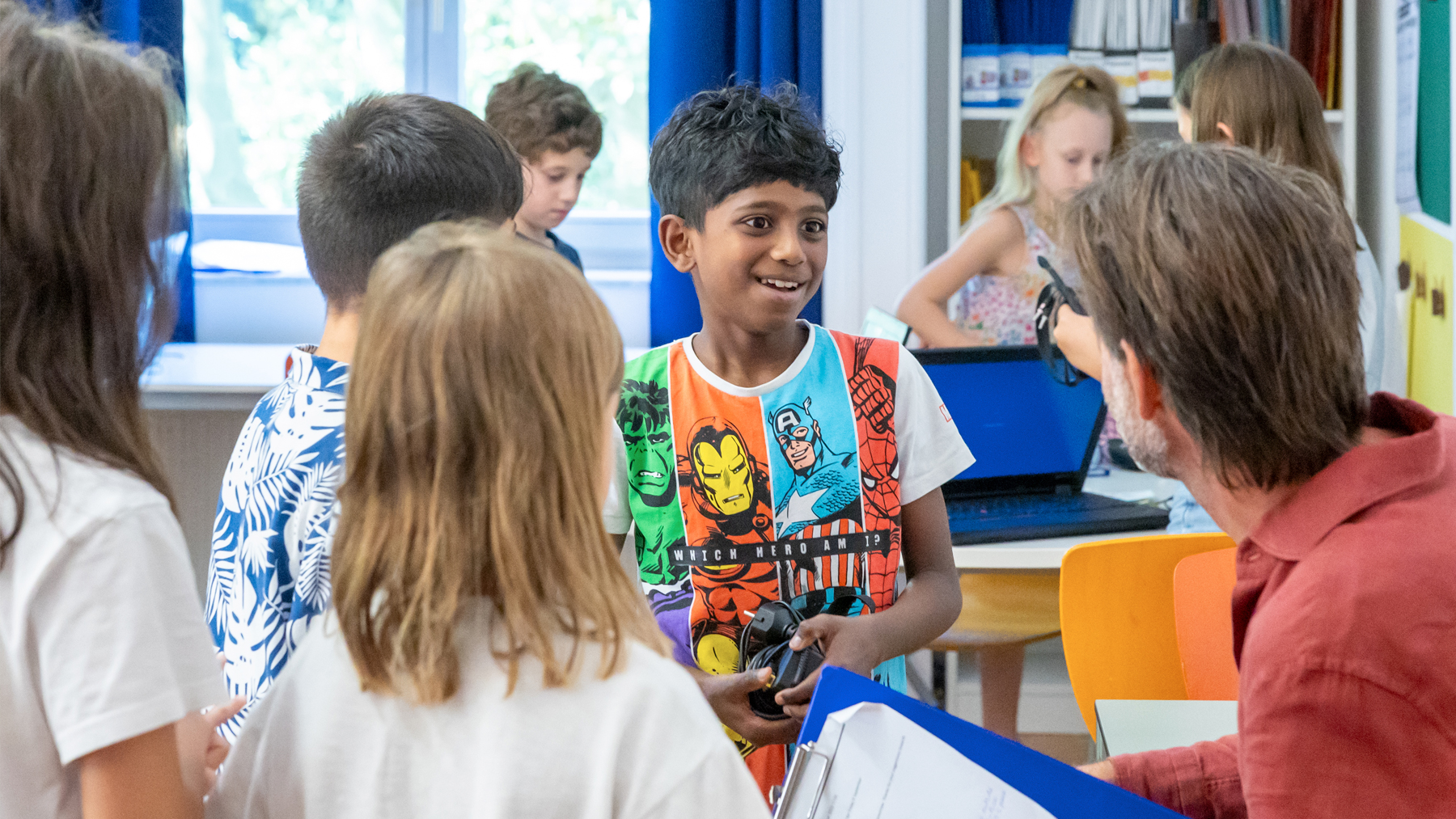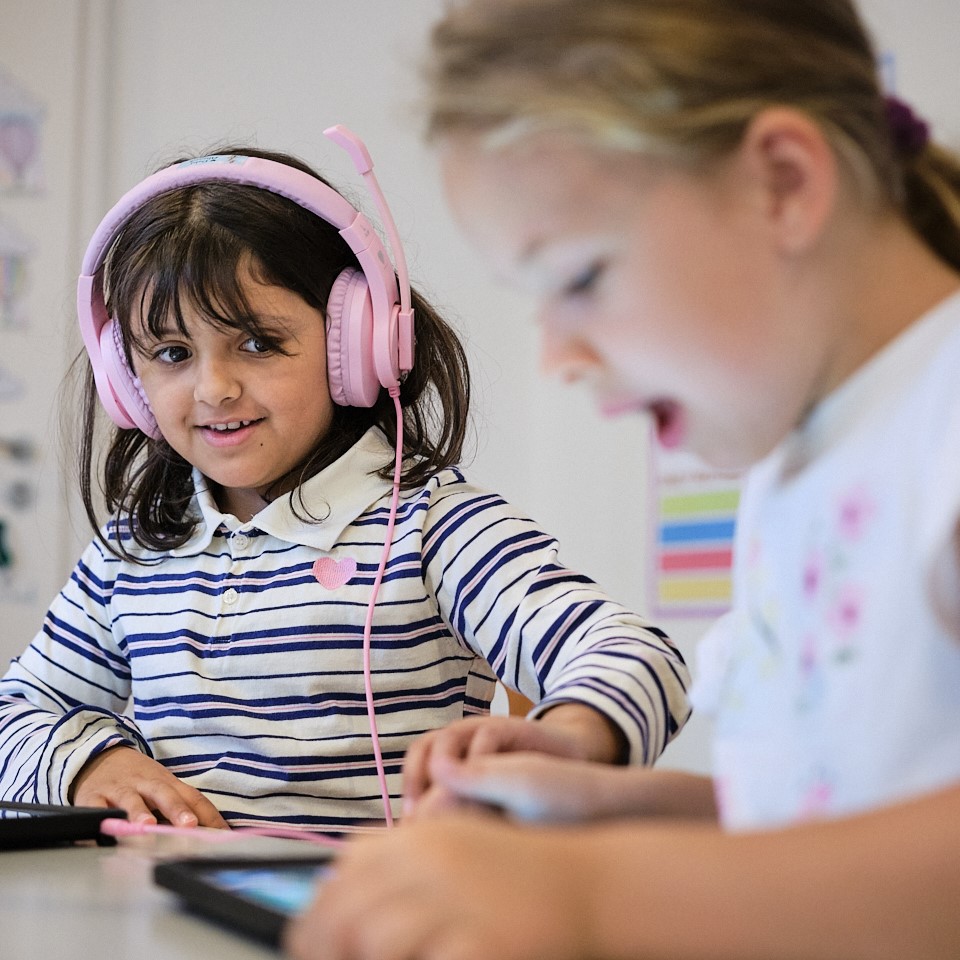Interview with the actresses, Veronika Maruhn and Victoria Hinzmann, ahead of their performance at IS Ruhr Unplugged "Villa Carnevale"!
 Giada, Yusu:
Giada, Yusu: What inspired you two to be actors, and has Karneval played a role in that decision?
Veronika: When I was a child I'd like to sing, dance and tell stories. So arts in generally played and still plays a very big role in my life. So it turned out naturally that I'm still working as a singer, actress and writer.
Karneval didn't play an important role but when I was young I was a « Funkemariechen » and danced during Karneval.
Victoria: I started acting when I was three to four years old in kindergarten and always knew it was what I wanted to do for the rest of my life. I'm sure the idea of wearing a costume and makeup to embody a character was one of the main reasons for this dream. Carnival itself wasn't an occasion back then because I had no idea about it.
Giada, Yusu: What are your favorite parts about the Karneval celebrations?
Victoria: My favorite Carnival events are the street parades and the parties with people from many different cultures.
Veronika: I like that the people are outside, having fun, everybody interacts with others.
Giada, Yusu: What have been your most memorable experiences as actors?
Veronika: The most memorable experience I remembered took place in Austria. I sang for the first time barock arias. After the concert an old lady came to me, she took my hand, kissed it, kneeled down and said: You sing like an angel. This moment touched me very much.
Victoria: This is a difficult question, because as humans, we have most of our memories having to do with stressful situations. I remember, for example, how once, during the first act, the stage lights suddenly went out, except for a small spark in one corner of the stage. Well, for the rest of the play we, the actors, had to huddle in that corner so that we could be seen by the audience. It was quite frightening, but also exciting.
 Giada, Yusu:
Giada, Yusu: What do you think makes Karneval special compared to other celebrations?
Victoria: Well, since Carnival is all about dressing up, that's obviously the most important and fun part of it. The costumes make the difference.
Veronika: The costumes are very special and by the way Karneval is the most humorous celebration.
Giada, Yusu: Do you have any favorite memories from a Karneval celebration or any favorite costumes?
Veronika: For four years I have been the art director of an ensemble of 17 Women. I worked with them several month on a Karneval show that took place at Weiber-Fastnacht. These shows with the women are my favourite memories. Everybody could be what she wanted to be.
Victoria: My most unforgettable memory was from 2 years ago when I dressed up as The Tramp. Most kids thought I was portraying the most evil dictator of the 20th century because of the mustache and because they didn't know Charly Chaplin. Then I saw the need for education that conveys cultural assets from all times. So that day I saw a Charly Chaplin film with the children and told them who he was.
---
You can see Veronika and Victoria live at
IS Ruhr Unplugged on 27 February. Come along! We are looking forward to seeing you.














 Oliver: Could you briefly introduce yourselves and explain how you ended up in Germany?
Hasan: We are two musicians performing together. I am a multi-instrumentalist with a background in both Western music and various ethnic instruments. Music has been a part of my life since childhood. I came to Germany through an international teaching program and have been living here for four and a half years. My colleague, who is originally from the Black Sea region of Turkey, shares a similar passion for music.
Oliver: What do you like most about performing music live and why?
Hasan: For us, the most exciting part of live performance is the chance to engage with the audience. We enjoy seeing how people connect with the music, contributing to the recognition of the pieces we play, and of course, experiencing the joy of being fully present in the flow of a live performance.
Oliver: How do regional differences affect the music genres across Turkey?
Hasan: Turkey’s musical landscape is deeply shaped by its geography and cultural diversity. Each region has developed its own styles, instruments, and rhythms that reflect local traditions and ways of life. In the Black Sea, you hear fast-paced and energetic melodies driven by instruments like the kemençe; in Central Anatolia, the music is often more melancholic, with long, emotional tunes called “bozlak.” Along the Aegean coast, zeybek dances highlight a proud and heroic character, while in the Southeast, music tends to be rhythmic and communal, inviting participation through dances like halay. These regional differences create a rich mosaic that not only showcases the variety of Turkish music but also tells the story of how people live, celebrate, and express themselves across the country.
Oliver: Does your personal experience of traveling across different locations provide you with a new perspective on the cultural diversity of Turkish music?
Hasan: Yes, traveling across Turkey gave us the opportunity to experience the strong link between geography, culture, and music. In each city we visited, we noticed how music reflects daily life and the social fabric of the region. This broadened our perspective and deepened our appreciation of the cultural richness within Turkish music.
Oliver: What are you looking forward to in your performance at IS Ruhr?
Hasan: Our goal is to introduce the audience to the evolution of Turkish music, from past to present, while showcasing its regional diversity. We have selected pieces that are lively and dynamic, as we believe energetic songs help keep the atmosphere uplifting in large gatherings. Above all, we look forward to sharing the joy of Turkish music with the audience and creating an engaging and memorable experience together.
Oliver: Could you briefly introduce yourselves and explain how you ended up in Germany?
Hasan: We are two musicians performing together. I am a multi-instrumentalist with a background in both Western music and various ethnic instruments. Music has been a part of my life since childhood. I came to Germany through an international teaching program and have been living here for four and a half years. My colleague, who is originally from the Black Sea region of Turkey, shares a similar passion for music.
Oliver: What do you like most about performing music live and why?
Hasan: For us, the most exciting part of live performance is the chance to engage with the audience. We enjoy seeing how people connect with the music, contributing to the recognition of the pieces we play, and of course, experiencing the joy of being fully present in the flow of a live performance.
Oliver: How do regional differences affect the music genres across Turkey?
Hasan: Turkey’s musical landscape is deeply shaped by its geography and cultural diversity. Each region has developed its own styles, instruments, and rhythms that reflect local traditions and ways of life. In the Black Sea, you hear fast-paced and energetic melodies driven by instruments like the kemençe; in Central Anatolia, the music is often more melancholic, with long, emotional tunes called “bozlak.” Along the Aegean coast, zeybek dances highlight a proud and heroic character, while in the Southeast, music tends to be rhythmic and communal, inviting participation through dances like halay. These regional differences create a rich mosaic that not only showcases the variety of Turkish music but also tells the story of how people live, celebrate, and express themselves across the country.
Oliver: Does your personal experience of traveling across different locations provide you with a new perspective on the cultural diversity of Turkish music?
Hasan: Yes, traveling across Turkey gave us the opportunity to experience the strong link between geography, culture, and music. In each city we visited, we noticed how music reflects daily life and the social fabric of the region. This broadened our perspective and deepened our appreciation of the cultural richness within Turkish music.
Oliver: What are you looking forward to in your performance at IS Ruhr?
Hasan: Our goal is to introduce the audience to the evolution of Turkish music, from past to present, while showcasing its regional diversity. We have selected pieces that are lively and dynamic, as we believe energetic songs help keep the atmosphere uplifting in large gatherings. Above all, we look forward to sharing the joy of Turkish music with the audience and creating an engaging and memorable experience together.

 The International School Ruhr was proud to take part in the ECIS Leadership Conference 2025, held at the International School Stuttgart. Under the theme of “Human Flourishing,” the conference brought together educational leaders from across the globe to explore the evolving purpose of education in a rapidly changing world.
Over several days, participants engaged in thought-provoking sessions and meaningful dialogue around key topics including student agency, the ethical use of artificial intelligence, and well-being within school communities. As a newly affiliated ECIS member, IS Ruhr was particularly pleased to see how closely ECIS’s strategic direction aligns with our own mission, vision, and values. Several sessions stood out for their relevance and depth:
The International School Ruhr was proud to take part in the ECIS Leadership Conference 2025, held at the International School Stuttgart. Under the theme of “Human Flourishing,” the conference brought together educational leaders from across the globe to explore the evolving purpose of education in a rapidly changing world.
Over several days, participants engaged in thought-provoking sessions and meaningful dialogue around key topics including student agency, the ethical use of artificial intelligence, and well-being within school communities. As a newly affiliated ECIS member, IS Ruhr was particularly pleased to see how closely ECIS’s strategic direction aligns with our own mission, vision, and values. Several sessions stood out for their relevance and depth:
 Beyond the formal programme, the conference also offered numerous opportunities for networking, collaboration, and the exchange of ideas. Informal conversations among colleagues from across Europe and beyond underscored the strength of the international school community and its shared commitment to educational excellence.
Participation in the ECIS Leadership Conference reaffirmed our belief in the power of collaborative, values-driven leadership. IS Ruhr looks forward to building on these insights and continuing to foster an environment in which both students, families and educators are empowered to thrive.
Beyond the formal programme, the conference also offered numerous opportunities for networking, collaboration, and the exchange of ideas. Informal conversations among colleagues from across Europe and beyond underscored the strength of the international school community and its shared commitment to educational excellence.
Participation in the ECIS Leadership Conference reaffirmed our belief in the power of collaborative, values-driven leadership. IS Ruhr looks forward to building on these insights and continuing to foster an environment in which both students, families and educators are empowered to thrive.

 Giada, Yusu: What inspired you two to be actors, and has Karneval played a role in that decision?
Veronika: When I was a child I'd like to sing, dance and tell stories. So arts in generally played and still plays a very big role in my life. So it turned out naturally that I'm still working as a singer, actress and writer.
Karneval didn't play an important role but when I was young I was a « Funkemariechen » and danced during Karneval.
Victoria: I started acting when I was three to four years old in kindergarten and always knew it was what I wanted to do for the rest of my life. I'm sure the idea of wearing a costume and makeup to embody a character was one of the main reasons for this dream. Carnival itself wasn't an occasion back then because I had no idea about it.
Giada, Yusu: What are your favorite parts about the Karneval celebrations?
Victoria: My favorite Carnival events are the street parades and the parties with people from many different cultures.
Veronika: I like that the people are outside, having fun, everybody interacts with others.
Giada, Yusu: What have been your most memorable experiences as actors?
Veronika: The most memorable experience I remembered took place in Austria. I sang for the first time barock arias. After the concert an old lady came to me, she took my hand, kissed it, kneeled down and said: You sing like an angel. This moment touched me very much.
Victoria: This is a difficult question, because as humans, we have most of our memories having to do with stressful situations. I remember, for example, how once, during the first act, the stage lights suddenly went out, except for a small spark in one corner of the stage. Well, for the rest of the play we, the actors, had to huddle in that corner so that we could be seen by the audience. It was quite frightening, but also exciting.
Giada, Yusu: What inspired you two to be actors, and has Karneval played a role in that decision?
Veronika: When I was a child I'd like to sing, dance and tell stories. So arts in generally played and still plays a very big role in my life. So it turned out naturally that I'm still working as a singer, actress and writer.
Karneval didn't play an important role but when I was young I was a « Funkemariechen » and danced during Karneval.
Victoria: I started acting when I was three to four years old in kindergarten and always knew it was what I wanted to do for the rest of my life. I'm sure the idea of wearing a costume and makeup to embody a character was one of the main reasons for this dream. Carnival itself wasn't an occasion back then because I had no idea about it.
Giada, Yusu: What are your favorite parts about the Karneval celebrations?
Victoria: My favorite Carnival events are the street parades and the parties with people from many different cultures.
Veronika: I like that the people are outside, having fun, everybody interacts with others.
Giada, Yusu: What have been your most memorable experiences as actors?
Veronika: The most memorable experience I remembered took place in Austria. I sang for the first time barock arias. After the concert an old lady came to me, she took my hand, kissed it, kneeled down and said: You sing like an angel. This moment touched me very much.
Victoria: This is a difficult question, because as humans, we have most of our memories having to do with stressful situations. I remember, for example, how once, during the first act, the stage lights suddenly went out, except for a small spark in one corner of the stage. Well, for the rest of the play we, the actors, had to huddle in that corner so that we could be seen by the audience. It was quite frightening, but also exciting.
 Giada, Yusu: What do you think makes Karneval special compared to other celebrations?
Victoria: Well, since Carnival is all about dressing up, that's obviously the most important and fun part of it. The costumes make the difference.
Veronika: The costumes are very special and by the way Karneval is the most humorous celebration.
Giada, Yusu: Do you have any favorite memories from a Karneval celebration or any favorite costumes?
Veronika: For four years I have been the art director of an ensemble of 17 Women. I worked with them several month on a Karneval show that took place at Weiber-Fastnacht. These shows with the women are my favourite memories. Everybody could be what she wanted to be.
Victoria: My most unforgettable memory was from 2 years ago when I dressed up as The Tramp. Most kids thought I was portraying the most evil dictator of the 20th century because of the mustache and because they didn't know Charly Chaplin. Then I saw the need for education that conveys cultural assets from all times. So that day I saw a Charly Chaplin film with the children and told them who he was.
Giada, Yusu: What do you think makes Karneval special compared to other celebrations?
Victoria: Well, since Carnival is all about dressing up, that's obviously the most important and fun part of it. The costumes make the difference.
Veronika: The costumes are very special and by the way Karneval is the most humorous celebration.
Giada, Yusu: Do you have any favorite memories from a Karneval celebration or any favorite costumes?
Veronika: For four years I have been the art director of an ensemble of 17 Women. I worked with them several month on a Karneval show that took place at Weiber-Fastnacht. These shows with the women are my favourite memories. Everybody could be what she wanted to be.
Victoria: My most unforgettable memory was from 2 years ago when I dressed up as The Tramp. Most kids thought I was portraying the most evil dictator of the 20th century because of the mustache and because they didn't know Charly Chaplin. Then I saw the need for education that conveys cultural assets from all times. So that day I saw a Charly Chaplin film with the children and told them who he was.
